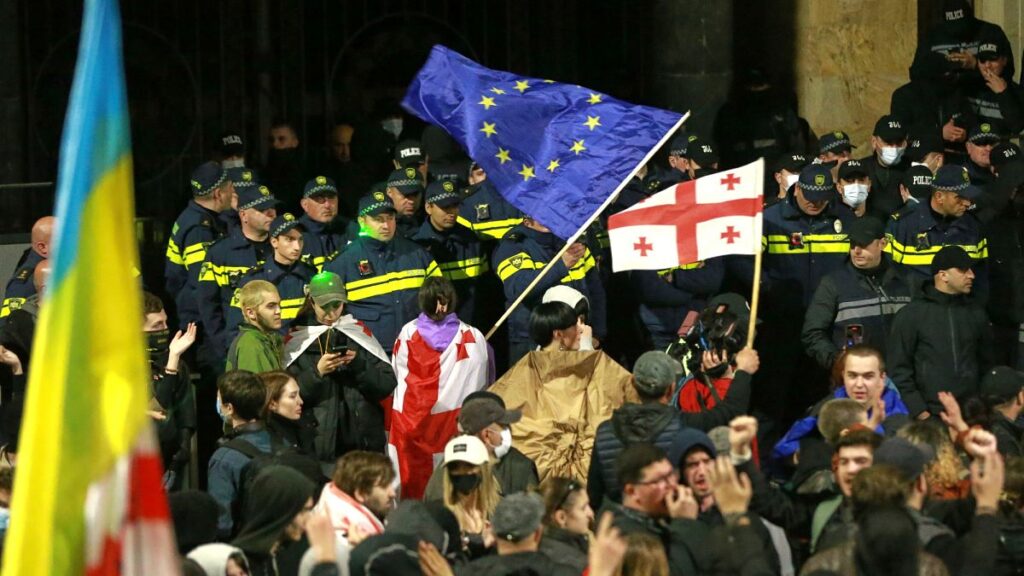By Euronews
Published on
European Foreign Ministers expressed they are “disturbed and deeply concerned at the deteriorating situation in Georgia,” they wrote in a joint statement on Friday.
It comes in a response to a progress report recently approved by the European Parliament on Georgia’s accession process, in which the majority of EU lawmakers deplored the “backsliding of the rule of law as well as the growing Russian influence of the ruling party, Georgian Dream.”
The EU and NATO are concerned over the growing Russian intrusions in the South Caucasus region, the European Parliament claimed, adding that they are also concerned by the number of detentions carried out by Georgian authorities against journalists and some members of the opposition.
At the end of last month, several key opposition figures were jailed as part of a months-long crackdown on dissent that followed a disputed election last October.
Nearly all leaders of Georgia’s pro-Western opposition are now behind bars, as protests continue against the ruling Georgian Dream party and its decision last year to halt Georgia’s bid to join the European Union.
The demonstrators, who have gathered daily in the capital Tbilisi, also say that the vote on 26 October that handed the ruling Georgian Dream party another term in power was not free or fair.
The Georgian Dream has denied these accusations, the party’s Secretary General Kakha Kaladze said the arrests had not been politically motivated, emphasising that politicians aren’t exempt from the law.
The joint statement by European foreign ministers condemned the detentions, claiming that they “contribute to dismantling of democracy in Georgia and rapid transformation towards an authoritarian system, in contradiction to European norms and values.”
They called on Georgian authorities to immediately release those who were unjustly detained, and urge them to engage in national dialogue with all relevant stakeholders.
The statement concluded that recent developments in Georgia resulted in a strained relationship between Tbilisi and Europe, and that “the authoritarian and anti-European course of the Georgian authorities further threatens Georgia’s democratic achievements.”
Georgian Prime Minister Irakli Kobakhidze told Euronews in May that his country plays a “vital role for Europe.”
“Everyone should recognise Georgia’s strategic importance for Europe, especially for the eurozone. Our role in the region is significant, and that’s why the need for dialogue with Georgian leaders is increasingly acknowledged,” he added.
Georgia applied for membership in March 2022 with Ukraine and Moldova, and received the candidacy in December 2023.
Only some months later, growing concerns and disagreements between the EU and the Georgian government prompted the two sides to freeze the enlargement process.
Read the full article here

